Offer-and-order management solution for LCC and hybrid carriers
_w=800_h=387.png?v=20230522122229)
Exclusive first look: Navitaire unveils next-gen Stratos solution
Last month, at its annual customer conference, Navitaire, debuted first looks for its airline customers of its next-generation solution, Stratos.
Travolution was able to get exclusive access for its readers to the behind-the-scenes demos of this new solution in action.
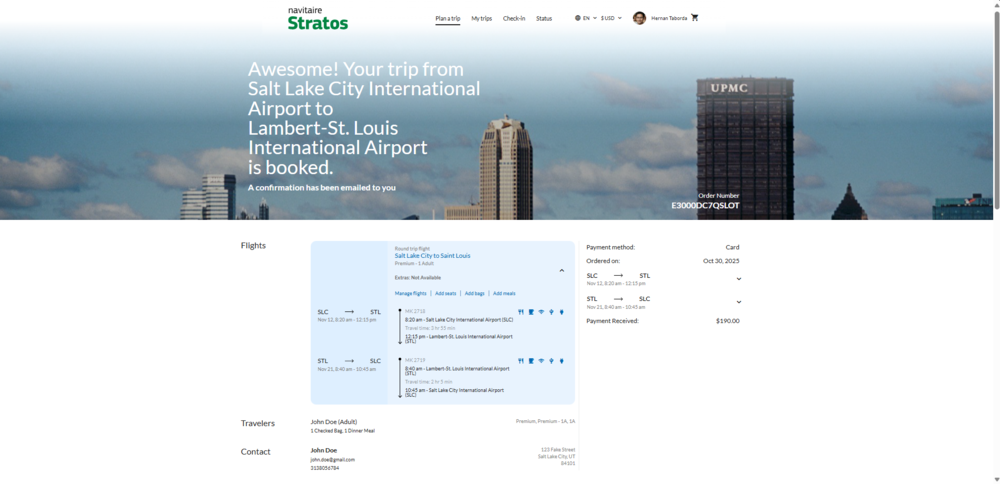
(Pictured: a customer order made using Stratos)
Stratos, being the next-generation follow on from Navitaire's current PSS offering - New Skies which was the first ticketless offering - for its low-cost and hybrid carriers is an Offer-and-Order management system that mirrors what its parent company, Amadeus, has done for its full-service providers with Nevio.
It is cloud-native and built on one singular open platform that runs throughout Amadeus' offerings meaning other necessary solutions that might be required to meet an airline's needs will be readily available to customers to add.
The two systems are different so to minimise potential risk Navitaire have built a bridge to plug the gap of business continuity between the two until the eventual goal of every customer moving over to Stratos is realised.
A carrier's website sits atop Stratos' Offer-and-Order retailing API to scynchronise all information including airline configuration, inventory, fares and schedules and orders once they are created.
The new functionality allows for things like scheduling changes (pictured below), managed in New Skies Schedule Manager, for example, reflected live in Stratos.
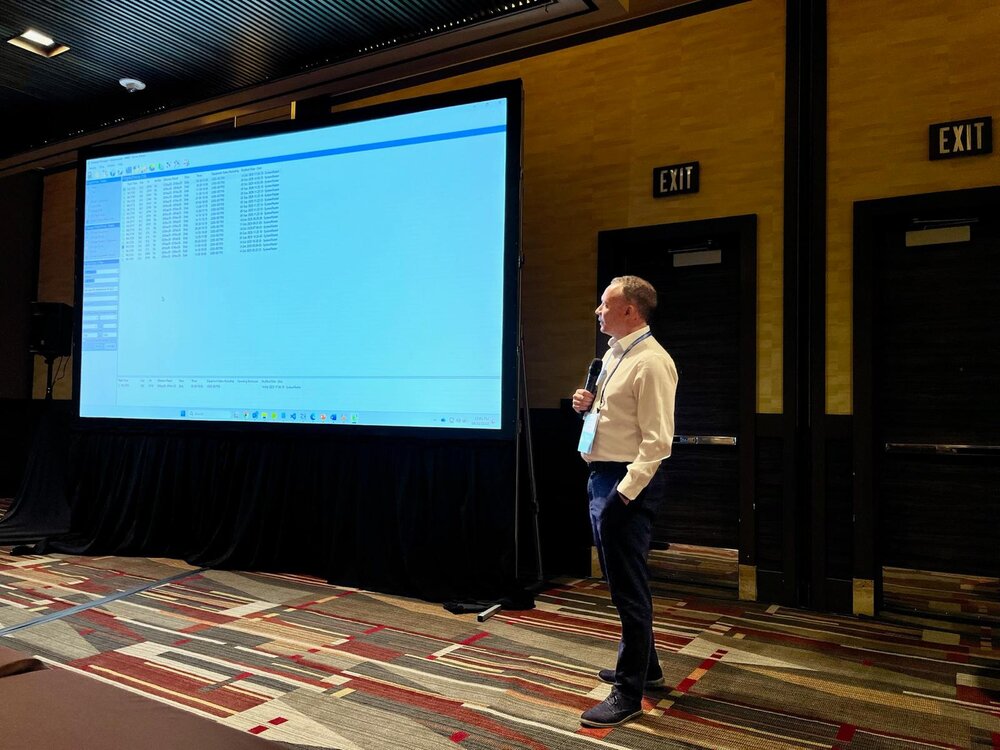
(Pictured: schedule manager New Skies backend)
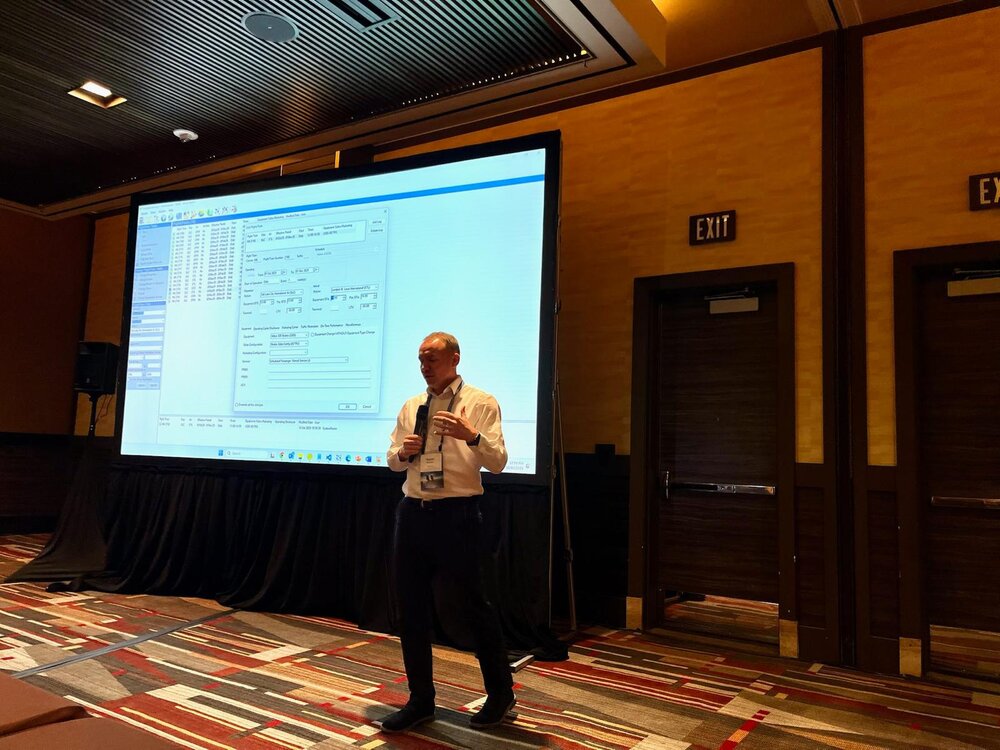
(Pictured: amends being made)
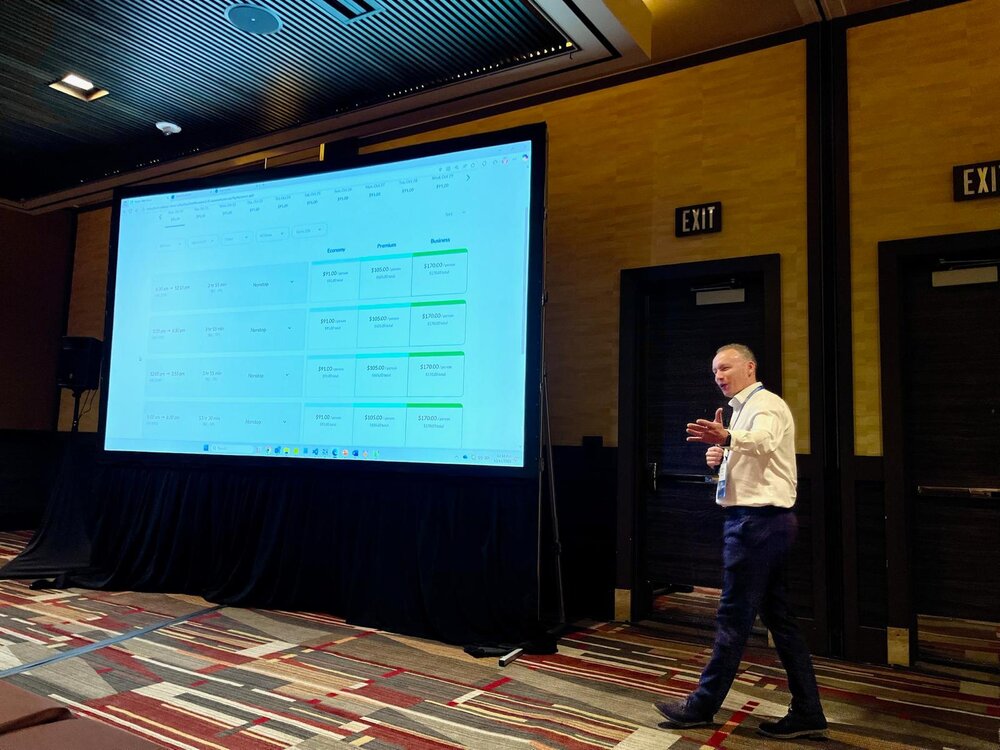
(Pictured: changes made now appearing in Stratos on the frontend)
It supports OAuth (Open Authorisation) and Open ID for travellers log ins and once a traveller has made a selection for search, Stratos will respond with generated offers, and apply price optimisations and ranking based on shopping context to increase relevancy. It then uses events as a mechanism to keep those offers up to date, unlike how New Skies behaves today.
New capabilities unique to this type of event-based architecture allow for monitoring product performance, which relies on decoupling between "offer pricing and construction from orchestrating presentation of the offer”.
Data work in Stratos allows for richer customer shopping experiences based on the likes of media descriptions or recommendations generated by AI.
Meanwhile, Stratos' cart capability sees new features such as saved for later items from the cart and live updating when in the cart for when a price is no longer the same or inventory expires, the cart reflects this.
If a customer doesn't visit the cart for say 30 days, the period of time is configurable by the airline, Stratos remembers and airlines are able to choose whether to offer alternatives or push a recommendation, for example.
It also has functionality to add multiple non-homogenous items to the same cart.
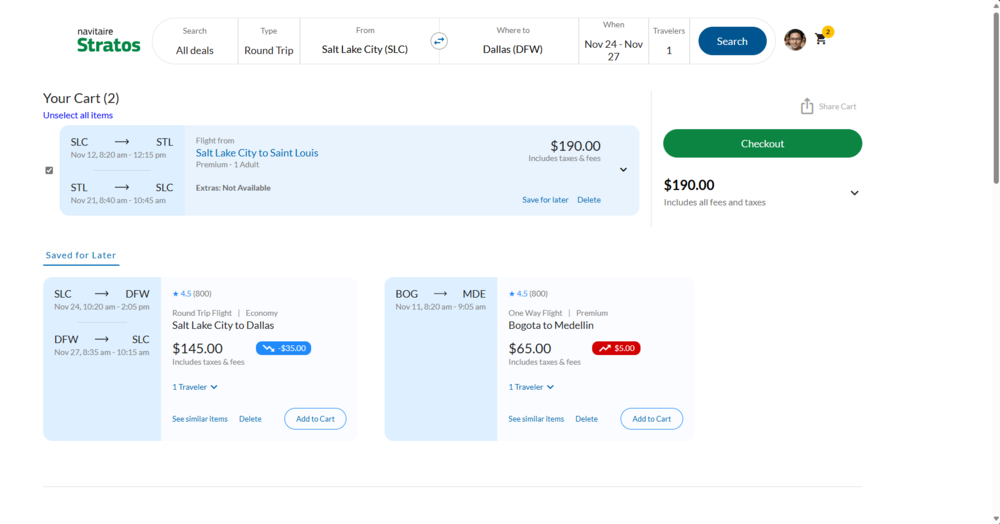
(Pictured: new ability to add multiple items to cart)
Other new capabilities improve customer sharing of carts with family and friends by using a deep link (URL) which will then display the content exactly as it was originally.
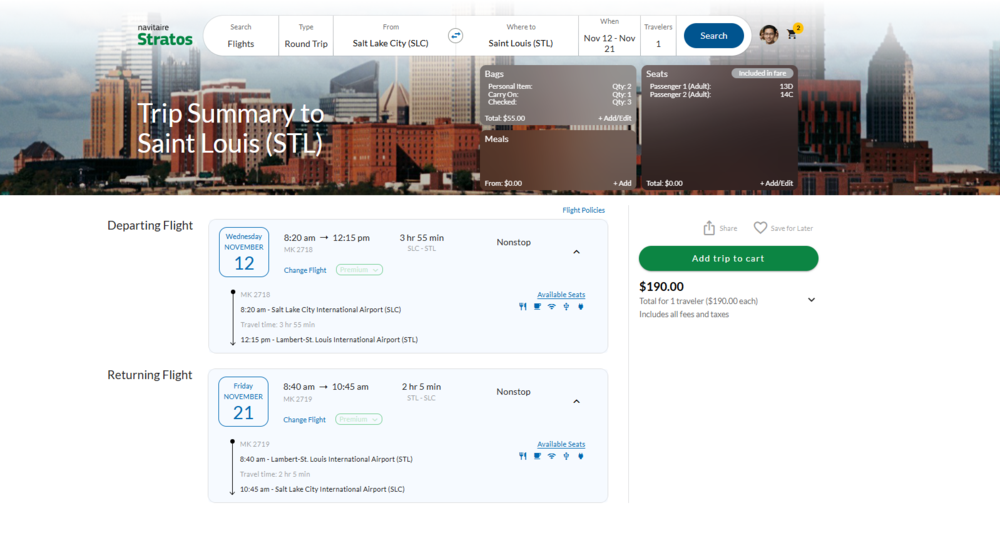
(Pictured: how it would look after it's shared for the recipient, just the same as the sender)
Stratos uses hot cache to keep offers generated to be long lived which will be useful for not just travellers but airlines for its marketing purposes when doing activity with Google ads or Facebook ads.
Selective checkout is available on Stratos and it is non-homogenous so hotels, cars, activities, refundability etc can all be added at the same point, too.
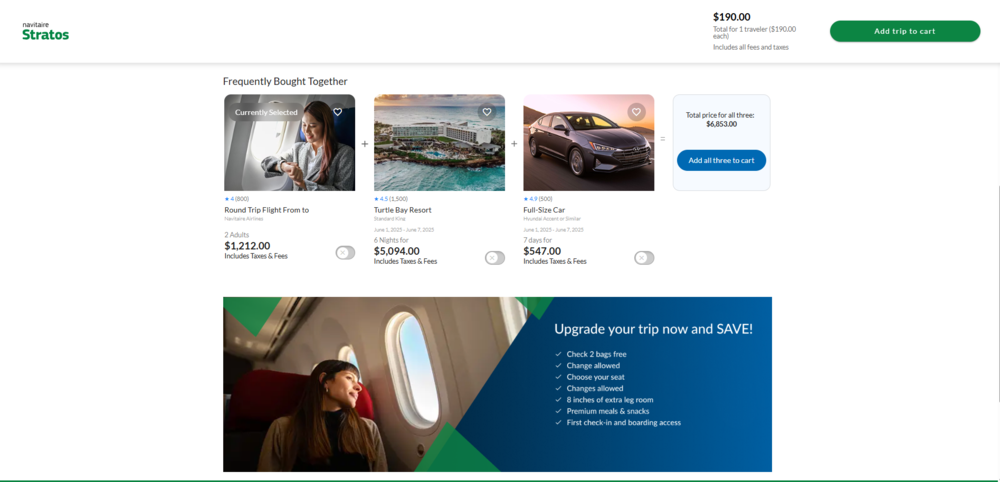
(Pictured: new ability to add ancillaries such as hotel and car hire)



